What is the difference between a desiccant and compressor dehumidifier? The things you need to know before buying one
Expert tips to ensure you make the right choice for your home

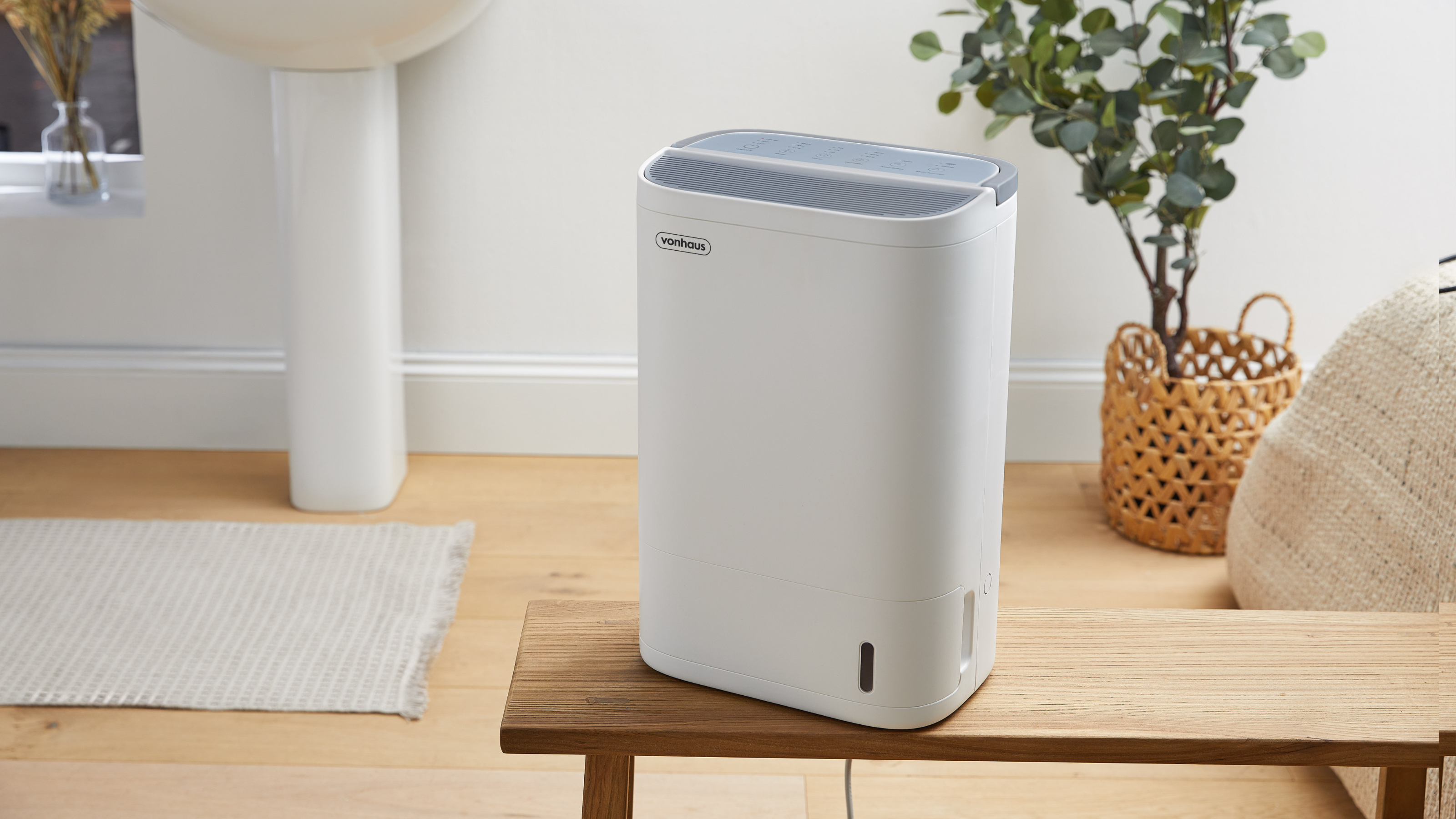
At this point, it goes without saying that a dehumidifier is a game-changing investment for maintaining a comfortable home during the wet winter months. Not only do they help reduce excess moisture in the air, effectively combatting issues like damp and condensation, but are also great for speeding up laundry drying times. However, with desiccant and compressor dehumidifiers being the two main types on the market, how can you be sure you're choosing the right one for your home?
To help you decide between the two, we've asked experts to explain the differences, their respective pros and cons, as well as how to know which is the suitable choice for your specific circumstances. We'll be factoring in important considerations such as size, noise levels, indoor temperatures, and energy efficiency differences between desiccant and compressor units; all to ensure you invest in the best dehumidifier to meet your needs.
Compressor dehumidifiers: pros and cons
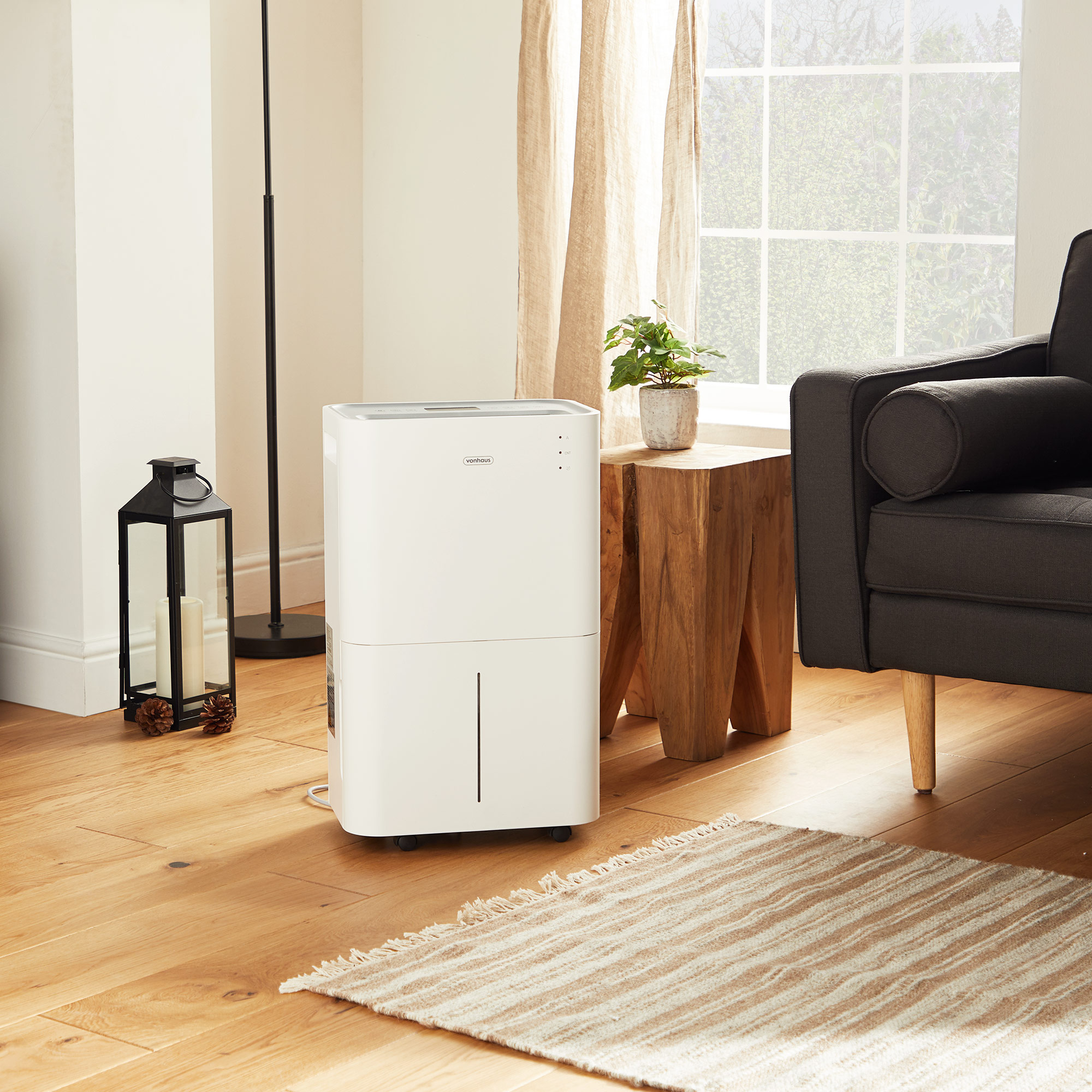
Generally speaking, many of the most popular dehumidifiers currently on the market likely fall into the compressor category.
'Compressor dehumidifiers are the established way of doing things having been around for over 50 years,' begins Chris Michael, managing director at Meaco. 'They work by creating a cool surface and when the warm, damp air from within the room comes into contact with the cold surface, condensation forms, and the water is removed from the air.'
Compressor dehumidifier pros
One of the biggest pros for compressor dehumidifiers is their lower energy consumption, which reduces the cost of running a dehumidifier when compared to their desiccant counterparts. Chris explains that this is especially true when using compressor models in warmer environments (above 15°C), as the refrigeration process works most effectively in these conditions. 'This makes them ideal for homes that maintain warmer average indoor temperatures,' he notes.
Because of their lower energy consumption, Aneesa Khan, VonHaus' assistant home electricals buyer also says that compressor dehumidifiers dry laundry at a cheaper cost than other models, and alternative appliances such as a tumble dryer.

Another benefit of compressor dehumidifiers are their high extraction rates. 'In warmer environments, they can extract large volumes of moisture from the air, which makes them highly effective for controlling humidity over extended periods,' says Chris. If you're looking to use a dehumidifier to dry out damp walls or plan to use one in a large space, opting for a model with a high extraction rate is key. You also have more options when choosing the right size dehumidifier for your space, as these capacities have a lot more variation.
Sign up to our newsletter for style inspiration, real homes, project and garden advice and shopping know-how
Another plus to using a compressor dehumidifier is the fact that many are fitted with HEPA filters. 'These can help purify the air in your home from dust, dirt, allergies, and mould spores,' says Aneesa. While dehumidifiers might not be the first thing to crop up in mind for reducing allergens in your home, models with HEPA filtration can kill two birds with one stone. For example, the Meaco Arete Two is a dual dehumidifier and air purifier.
Compressor dehumidifier cons
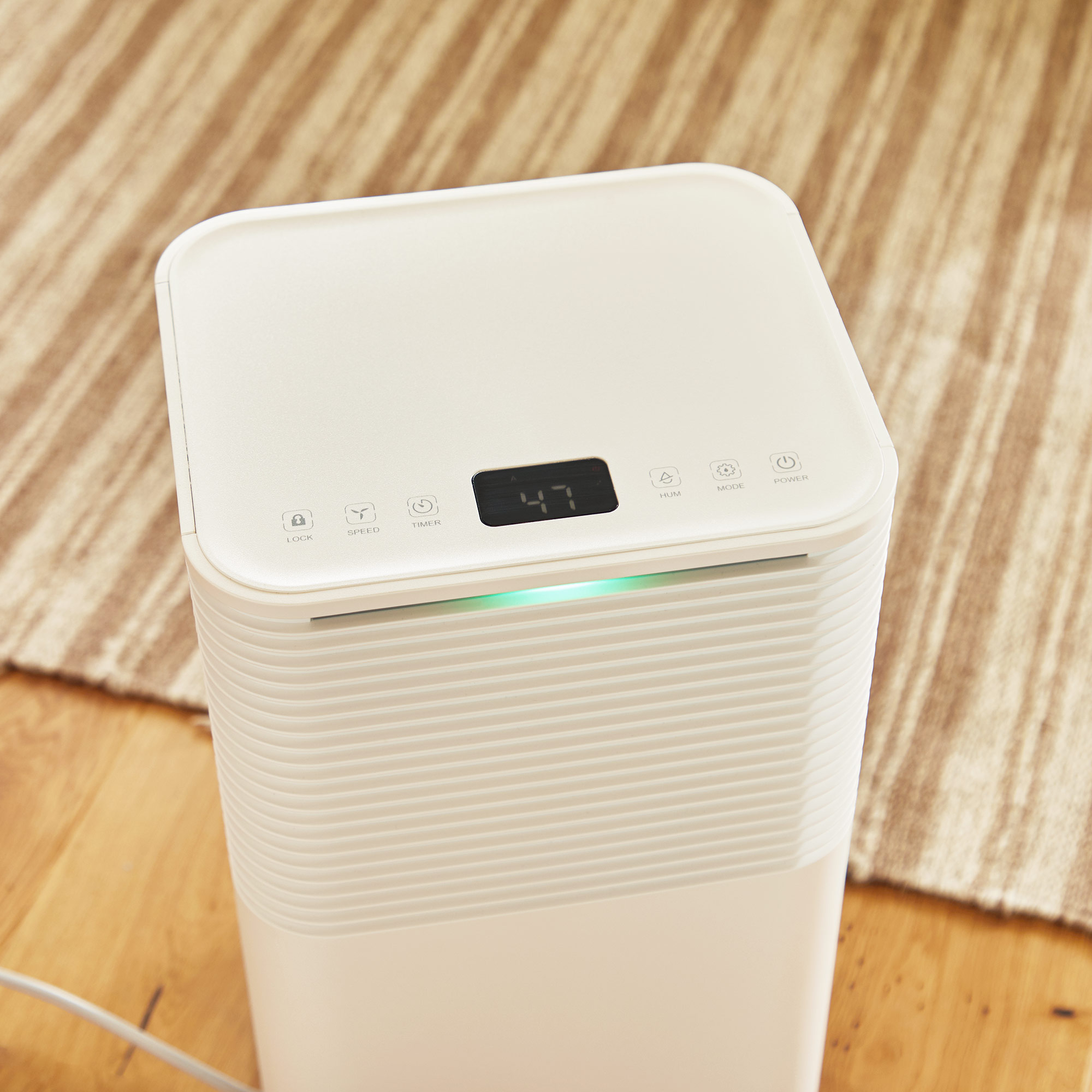
Although compressor dehumidifiers are the overwhelming market standard, they're not without their faults. Firstly, compressor units tend to be less effective in cooler conditions (below 15°C), as the cooling coils cannot condense moisture as efficiently in lower temperatures. Chris explains that this in turn reduces their performance, forcing them to defrost. In colder than average environments, opting for a desiccant dehumidifier is better.
Then, there's noise levels to consider. 'These dehumidifiers tend to be noisier than desiccant models due to the operation of the compressor. Many modern designs are a lot quieter and have a similar noise level to a desiccant dehumidifier, but some may still find them disruptive,' notes Aneesa. Therefore, if you're particularly sensitive to noise and plan to use a dehumidifier in a bedroom or a home office, it's worth taking this into consideration; especially if you're hoping to sleep better with a dehumidifier.
Maintenance is another important factor to consider, as the compressor and refrigerant charge may need replacing over time. Not to mention, because of their larger extraction rates, they can also be heavier and bulkier on average. However, we will say that some compressor dehumidifiers can combat this issue by having castors available for easier portability.
Shop our top-rated compressor dehumidifiers
As for product recommendations, some of our favourite compressor dehumidifiers include the MeacoDry Arete Two, the ElectriQ 12L Dehumidifier, and the De'Longhi Tasciugo AriaDry. All of these dehumidifiers wowed us in one way or another, and we think they're a select few of some of the best in class models available on the market right now.
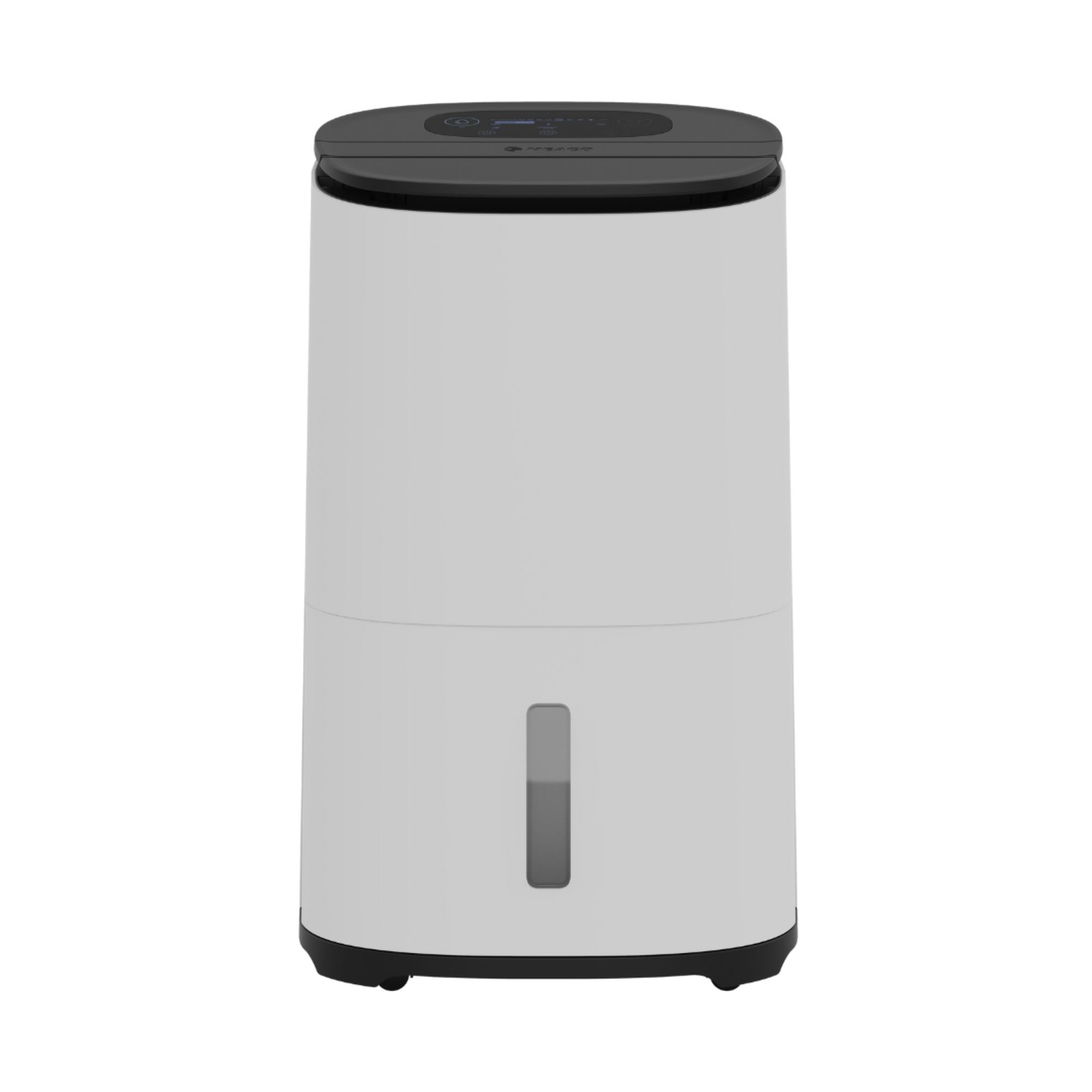
The MeacoDry Arete Two is our favourite dehumidifier overall, boasting a fantastic laundry drying mode, timer, and smart features. Plus, it not only dehumidifies, but also has a built-in HEPA filter and air purification mode, which works brilliantly for improving air quality levels in more ways than just one.
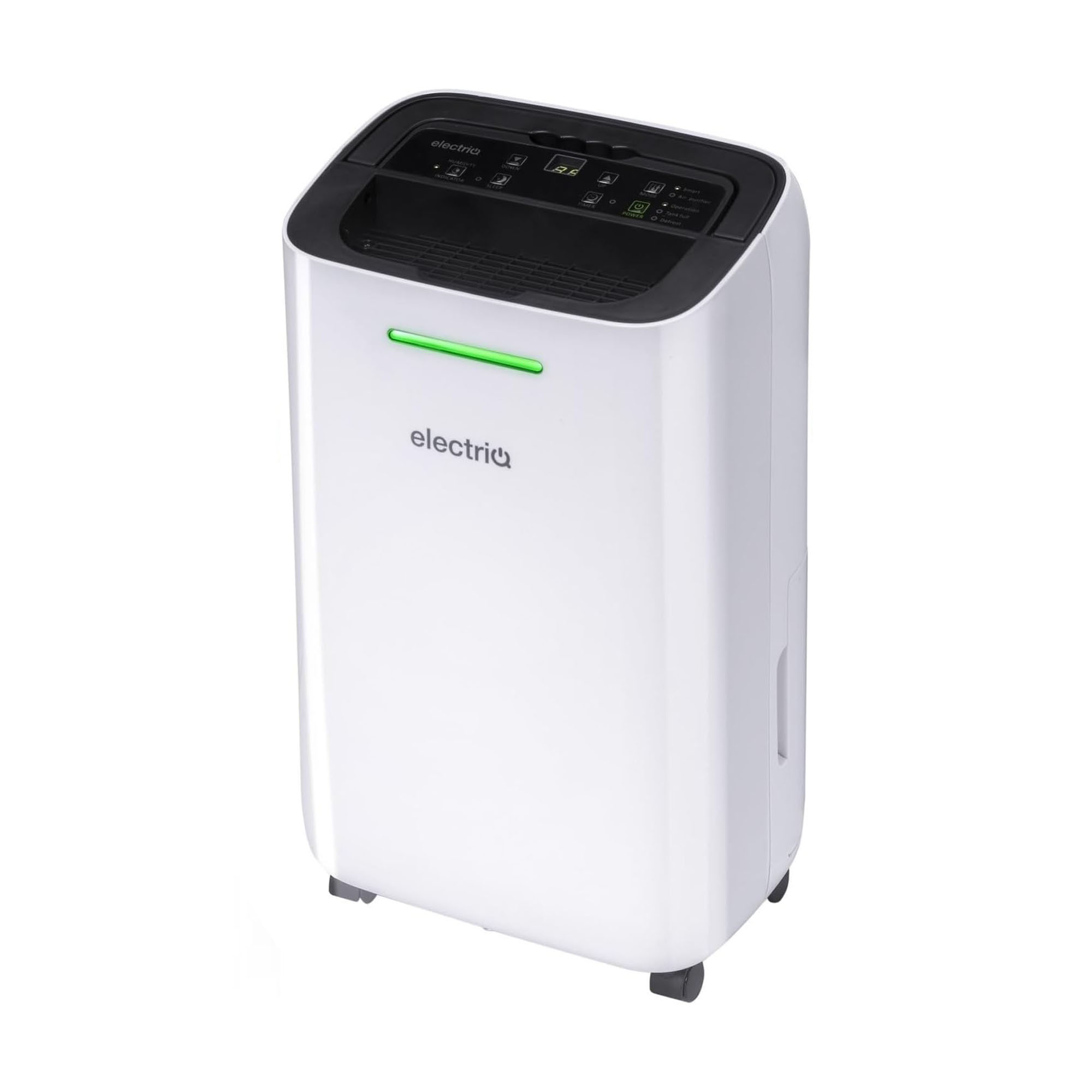
This dehumidifier is one of our favourite affordable solutions, delivering in performance and easy to use controls. It's so simple to manage and monitor humidity levels in your home from just a glance, and it also removes odours thanks to the built-in carbon filter.
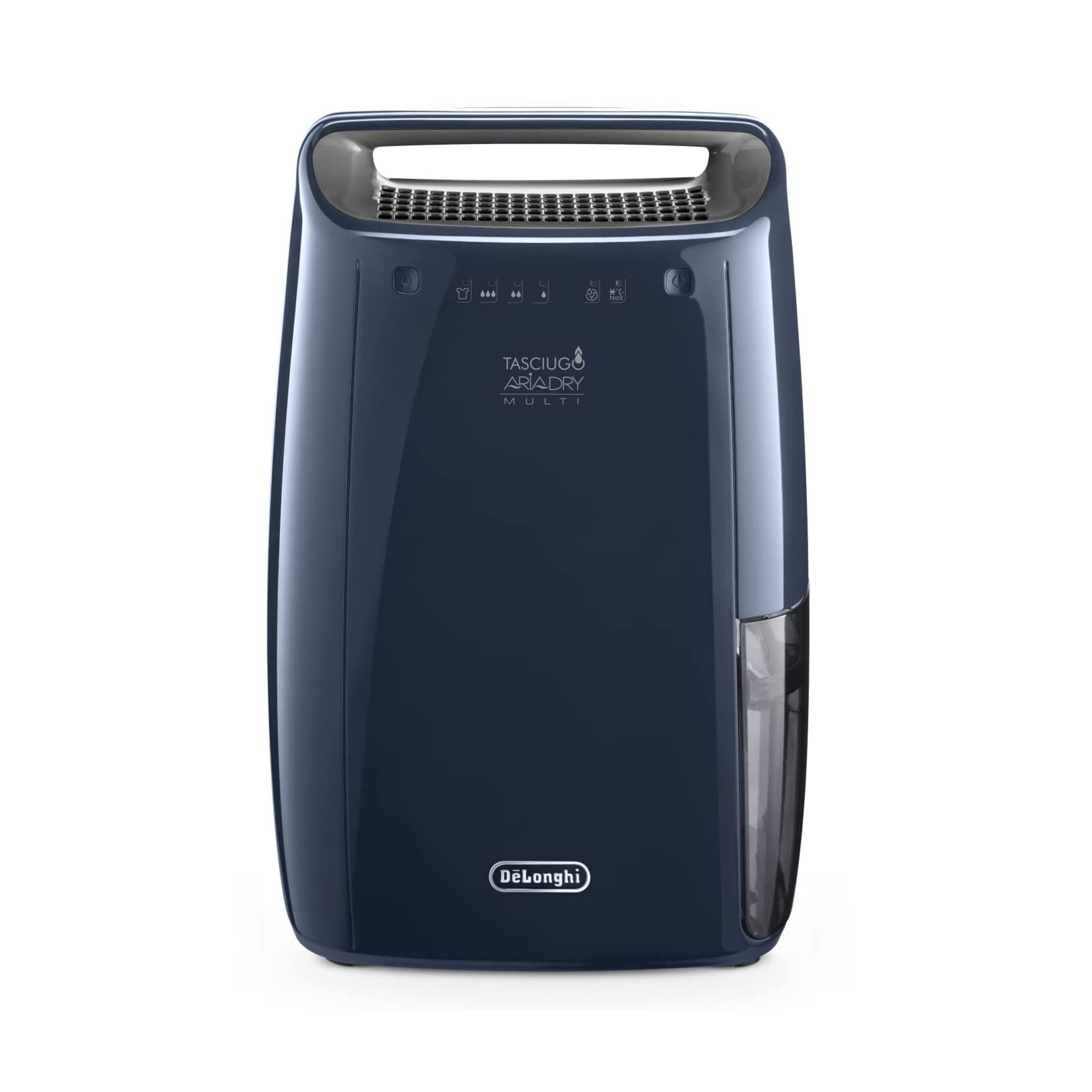
This sleek, Italian-designed dehumidifier is big on style whilst simultaneously meeting our expectations on performance. We found it's the best we've tried for drying clothes indoors, if that's your big priority, and also comes with a built-in air purifier mode.
Desiccant dehumidifiers: pros and cons
Desiccant dehumidifiers, on the other hand, have no compressor nor use a cold surface to extract the excess moisture from the air. 'Instead, it has a desiccant wheel that absorbs the moisture from the air, in a similar way to a sponge. The desiccant is regenerated by an internal heater and fan so that the process can be repeated time and time again,' explains Chris.
Desiccant dehumidifier pros
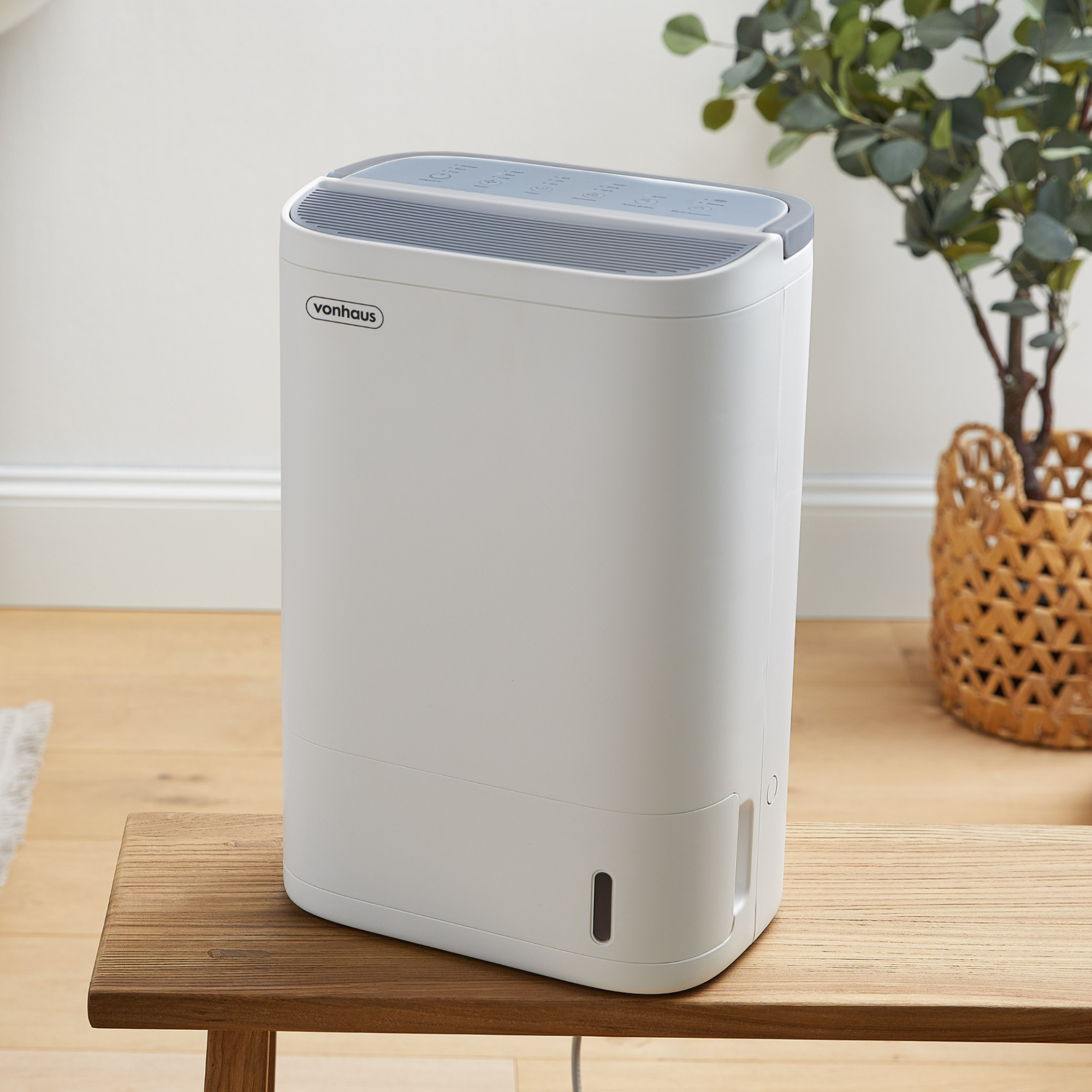
Probably the biggest pro of a desiccant dehumidifier is that it's efficient in all temperatures. 'Desiccant dehumidifiers maintain consistent performance regardless of temperature, making them highly effective in colder conditions. They're a good choice when year-round dehumidification is needed,' says Chris. These models are a great pickup for rooms that are generally colder on average, such as a garage or a conservatory where temperatures tend to fall under 10°C.
Another benefit of a desiccant dehumidifier is that they tend to be quieter and lighter, providing a more comfortable experience if you're sensitive to noise levels and need the extra portability if moving it from room to room is a big priority.
'The air coming out of a desiccant dehumidifier will also be significantly warmer than the air going in, which will help to warm the room it's being used in,' adds Aneesa. This could be a nice touch for that extra bit of warmth this winter, but suffice to say, it's not enough heat to completely replace the need for central heating or the best electric heater.
Desiccant dehumidifier cons
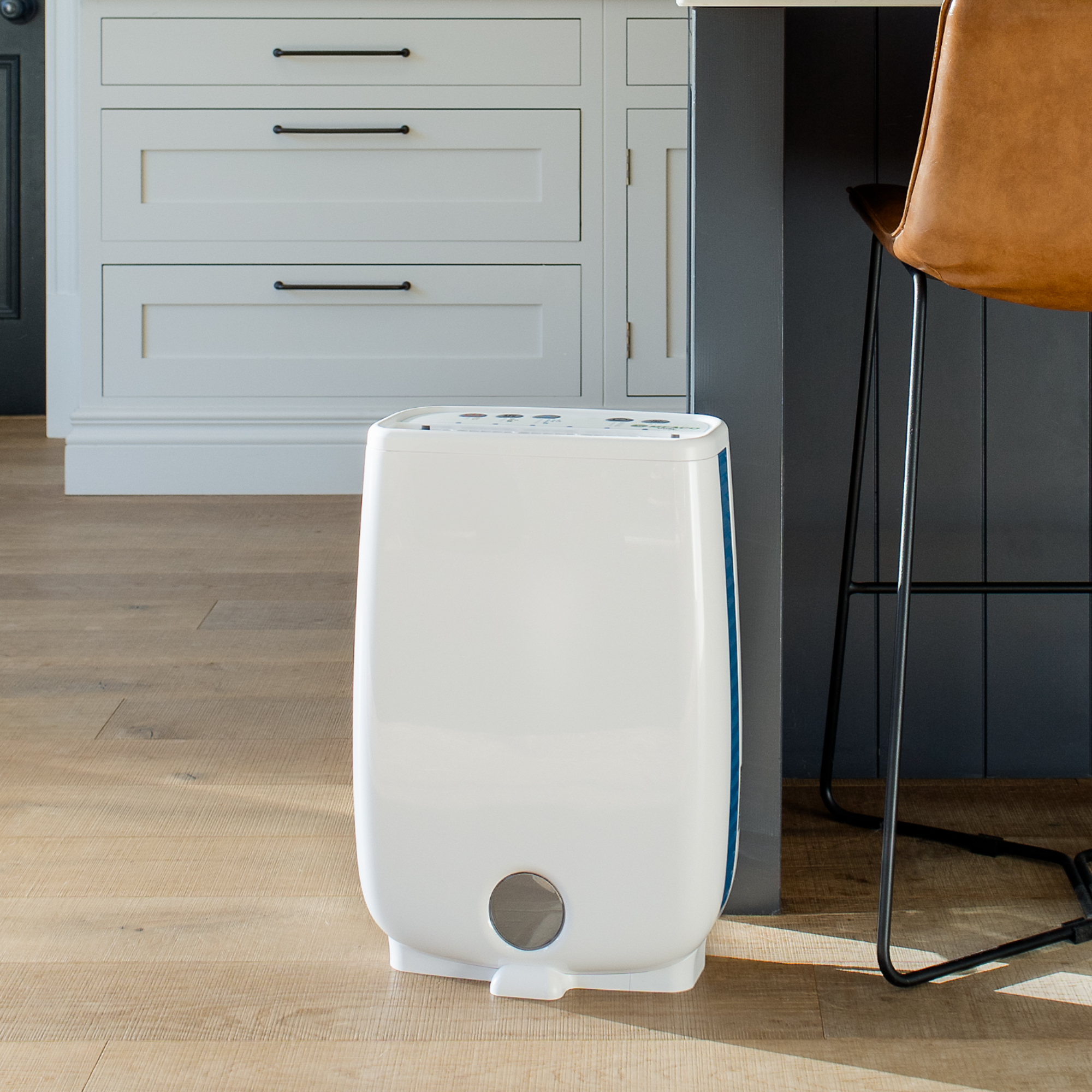
What is probably the biggest downside to desiccant dehumidifiers is the fact that they tend to have a higher energy consumption rate compared to a compressor, meaning running costs are likely to be higher. Chris notes that this is especially true if you plan to use a desiccant dehumidifier in a warmer environment. Generally speaking, you should reserve desiccant models for colder rooms.
'They're also slower at removing large volumes of moisture from the air, which means they're best suited to smaller spaces or where there are moderate humidity levels – not the best choice if you have a larger space,' explains Aneesa.
Lastly, desiccant dehumidifiers can't double up as an air purifier, as these models cannot be fitted with a HEPA filter. In the case of reducing allergens in your home, it's probably worth looking into the best air purifiers to run alongside your dehumidifier.
Shop our top-rated desiccant dehumidifiers
As of right now, we've only tested two desiccant dehumidifiers: the EcoAir DD1 Simple MK3 Dehumidifier and the VonHaus Desiccant Dehumidifier. However, both have impressed us with their capabilities and performance.
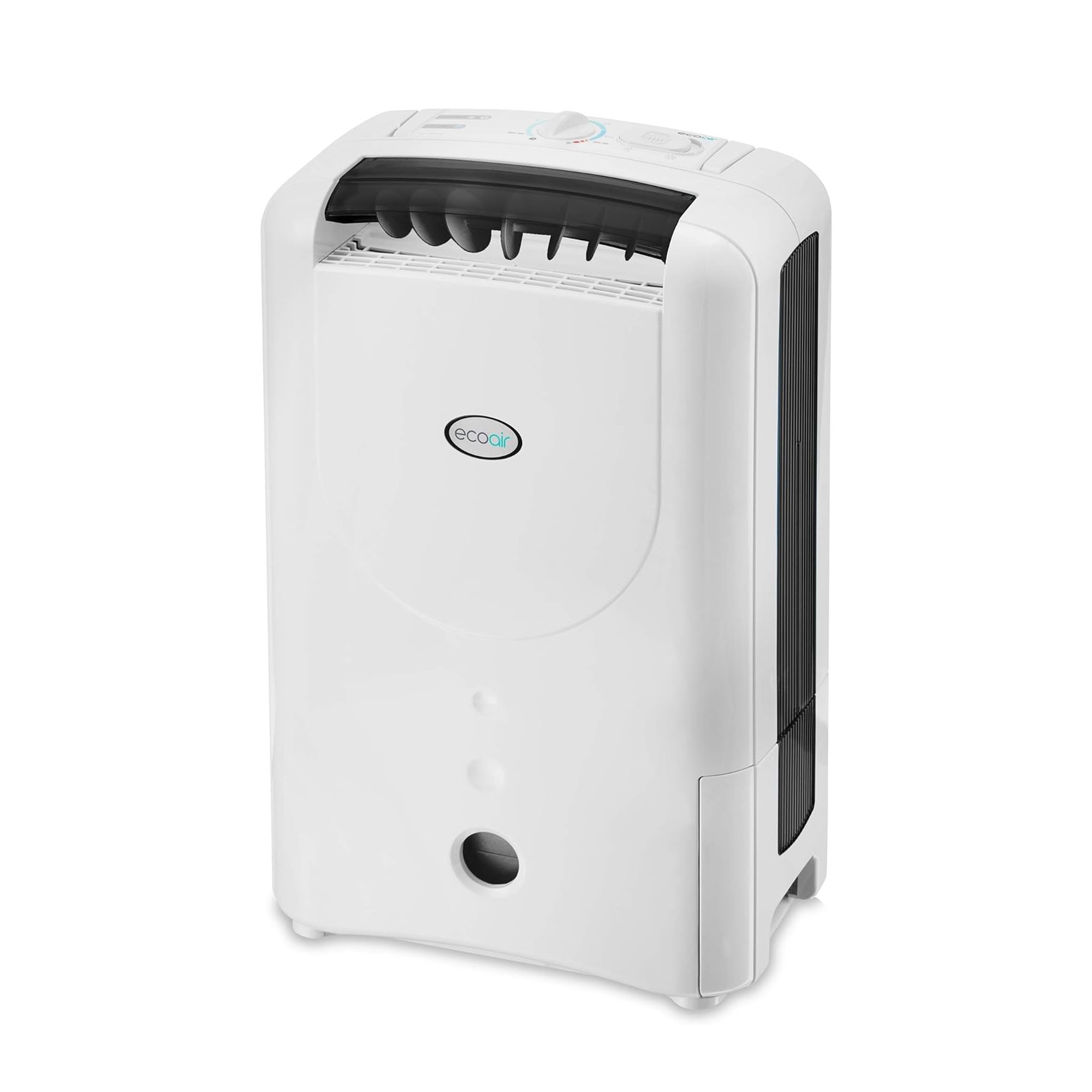
Ideal for environments with temperatures as low as 1°C, this dehumidifier works superbly for drying out damp in unheated rooms and benefits from a portable, compact build for easy moving from room to room. It has a great laundry drying mode and is easy to operate.
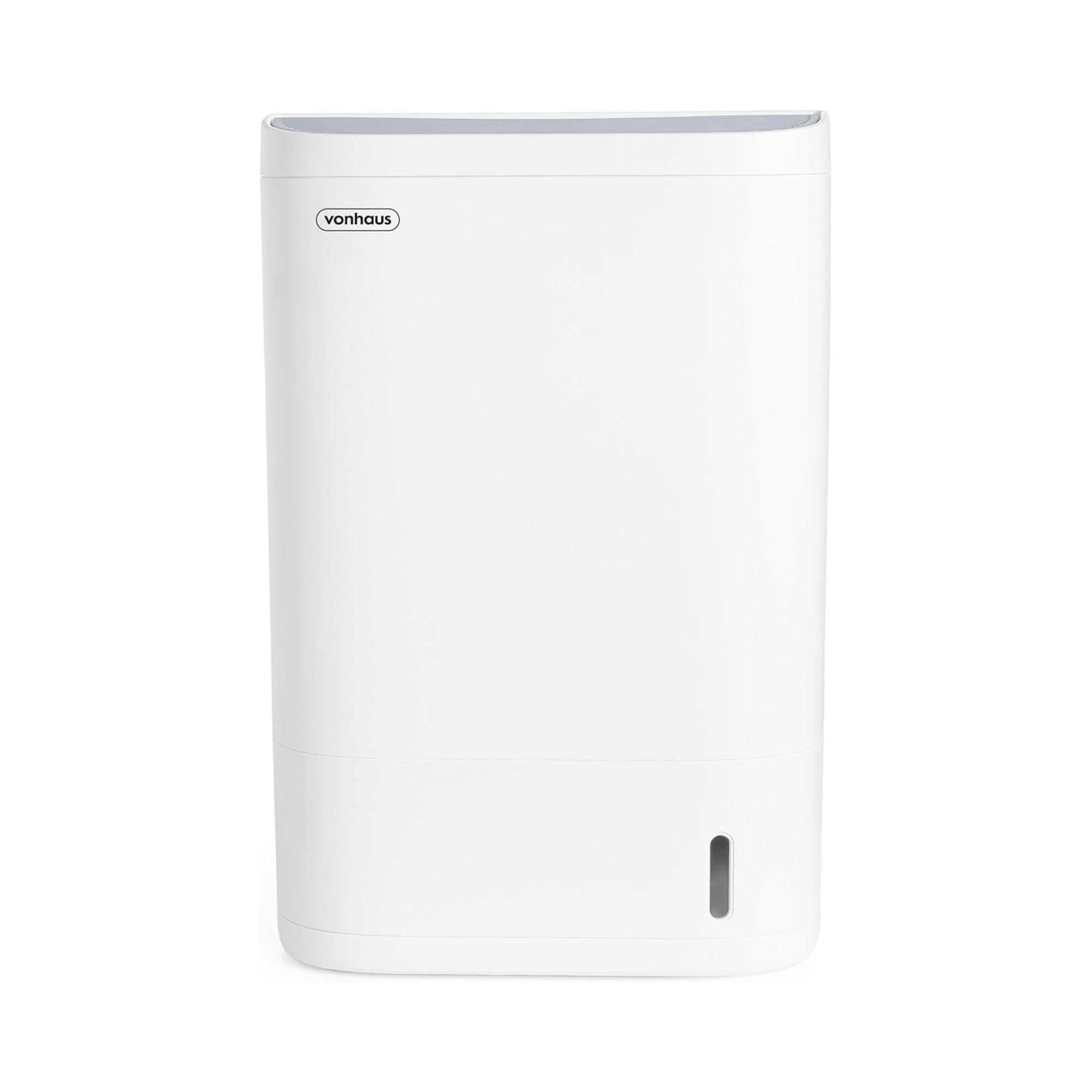
This desiccant model is easy to use and benefits from a comfortable 2.5L tank capacity, which is ideal if you don't fancy emptying it frequently. It's quiet to use on the lowest setting, and looks stylish too.
Which dehumidifier type is right for you?
Both compressor and desiccant dehumidifiers are helpful tools for effectively getting rid of damp and condensation as well as speeding up laundry drying times. However, being aware of the above slight differences between each can help you make a more informed decision that'll be the most beneficial for your specific circumstances.
'Compressor dehumidifiers work really well in warm conditions with an optimum temperature of 20°C and are less effective in cool conditions, so if you have a cooler room or you're not using your central heating, it may not work as effectively,' says Aneesa. Not to mention, they also consume less energy and are cheaper to run.

'Desiccant dehumidifiers, on the other hand, are the preferred option if you need a unit that performs reliably across all seasons, particularly in colder conditions or for spaces that are less temperature controlled. For example, desiccants are often used in unheated rooms and spaces such as basements, cellars, garages, on boats etc,' explains Chris.
'As a rule of thumb we would always recommend a desiccant dehumidifier if the room temperature is below 10°C, a desiccant dehumidifier or a large compressor dehumidifier (either a 20L or 25L) if the room temperature is between 10°C and 15°C and any type of dehumidifier, including a small compressor dehumidifier (10L or 12L), if the room temperature is above 15°C,' he concludes.
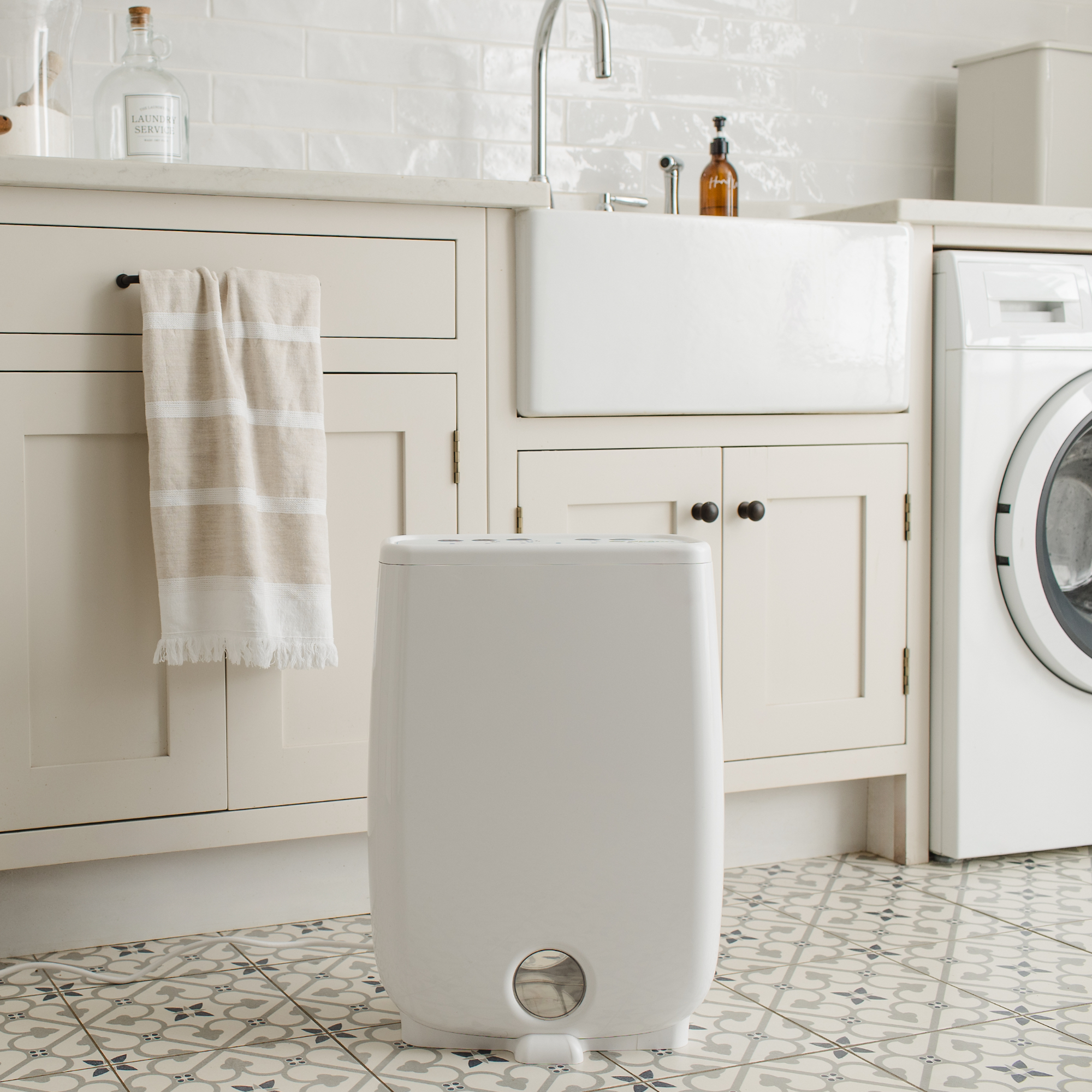
As with any investment, the choice between a desiccant and compressor dehumidifier ultimately depends on your specific needs and living conditions. However, irrespective of your choice, you can rest assured that taking the leap to invest in a dehumidifier is a step in the right direction to a more comfortable home environment this winter.

Jullia was Ideal Home’s Junior Writer from 2022-2024 and the Ideal Home Certified Expert in Training on Vacuums having spent over 60 hours testing different models. She’s always loved all things homes and interiors, graduating with a bachelor’s degree in Architectural Studies from the University of Nottingham where her love for writing blossomed following her internship at ArchDaily. Now focused on home tech and cleaning, Jullia works on writing features and explainers to help people make the most of their home appliance investments, putting the newest launches through their paces. When she isn’t writing, she loves exploring the city, coffee shop hopping, and losing hours to a cosy game or book.